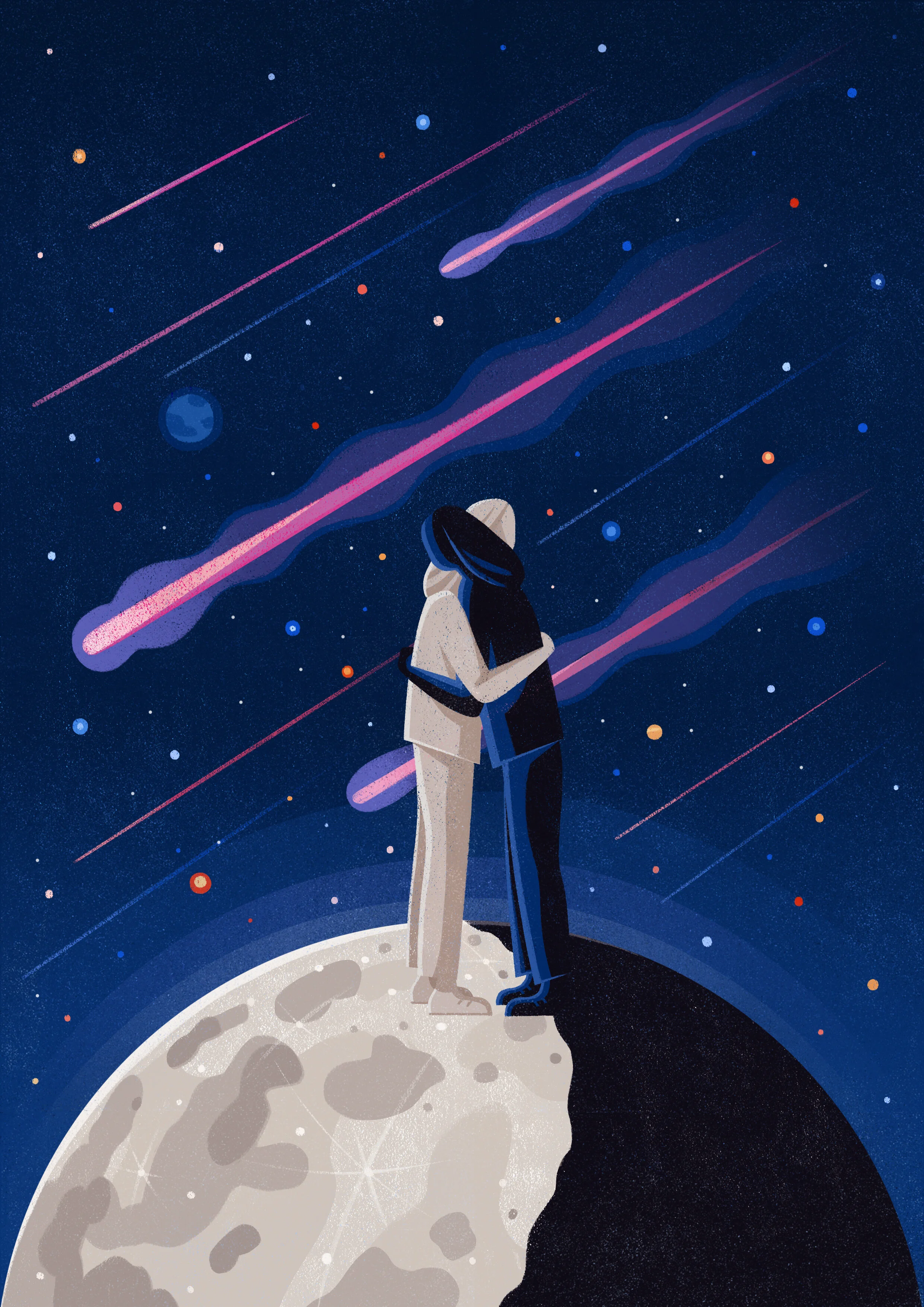#4
Comic Relief
By Harriet Corke
I have always loved comedy. From 70s sitcoms to Horrible Histories CDs to the infinite quotation of our family’s favourite wit (my granddad), I was shaped to see the world in a humorous way.
Even when I was semi-mute, my friends and I laughed a lot. On the car journey home from our church youth group we used to collectively host a quiz show. All the questions started:
“What are the properties of…?” and were customised to include anything we could see, both in and out of the car. There was no right answer; naturally, we were all wrong, all the time.
Illustrations by Jiatong Liu
Humour is a great distraction. By the time I was 14 I had carved out a niche as The Funny One in my friend group, mobilising stolen material and euphemistic jokes as a way of livening up a day in our dull, peculiar school. It worked. One of my friends suggested I become a stand-up comedian when I was older. I agreed.
My personality felt eternal, and so when my mum mentioned to me, very casually, that I had been mute until three years prior, I was shocked. I had no idea what she was talking about.
Finding out you’ve blocked out a large chunk of your life is the “I’m so powerful – my mind, ugh, it amazes me sometimes” moment that you don’t want. I don’t remember what happened the rest of that day, only that I was confused and questioning everything.
Nothing made sense. Being considered funny requires a sense of verboseness: you have to be able to make yourself heard. I quite liked making myself heard. But if my childhood was spent mute, where did that trait come from? The person I thought I was now seemed unreal – but so did the person I used to be. I saw myself split in two, and was determined to pick the right version.
Seven largely indecisive years passed. At 21 I graduated and moved in with some strangers. I was working two front of house jobs and had a blister the size of a £2 coin on my feet. It was summer 2018 and, as I always do in a crisis, I was creeping back into my comfort zone – a place filled with recognisable references that helped to cushion me from the world.
One of these was Simon Amstell. Simon was the first stand-up comedian I had ever truly liked. He was a calming voice that reminded me that life could be funny – and that escape from Essex was possible.
Rewatching Numb, his third special, was the catharsis I didn’t know I needed. And I didn’t just laugh: for the first time I felt a huge admiration for the way he laughed at painful experiences, turning himself into a ridiculous character for the audience to relate to. Rather than draining the anxiety from his performance, he submerged himself in it and…
…hang on a minute.
At 14, I felt personless. I was a vague collection of contradictory things that would never properly align. At 24, they still don’t. I am often the loudest person in the room, but I don’t like being the first to walk in. I am desperate for everyone to hear my opinion, but freeze up at the thought of ordering coffee. I like cheering people up, but I’m a massive pessimist. I love potatoes, but I hate mash.
I have learnt that there is no need to sacrifice one aspect of yourself in favour of another. It is possible to be both the loudest and most insecure person in the room; the funniest and the loneliest. What I saw, and continue to see, in Simon Amstell’s work is that being funny and being normal do not always overlap. And, in fact, it’s better if they don’t. In life and in writing, I re-learnt the importance of seeing the world – and myself – in a humorous way.


